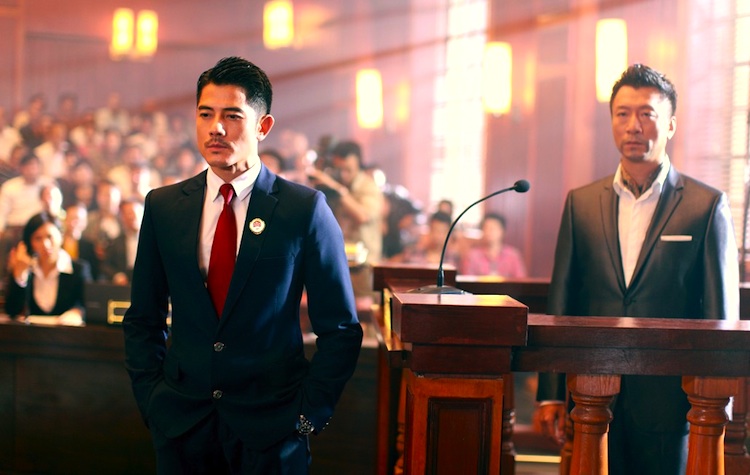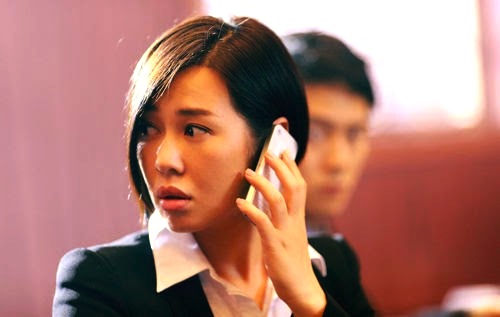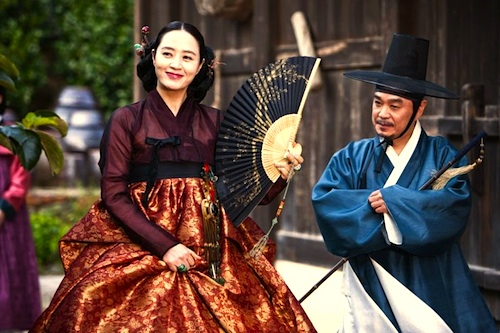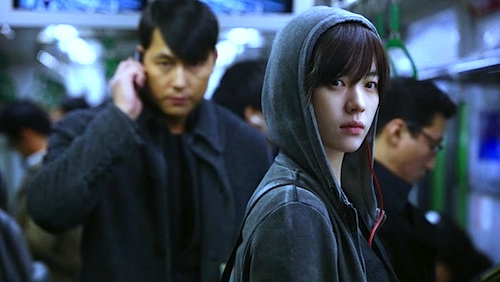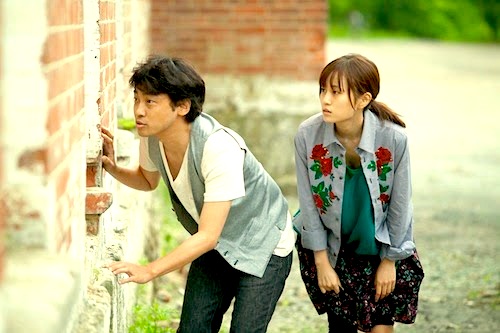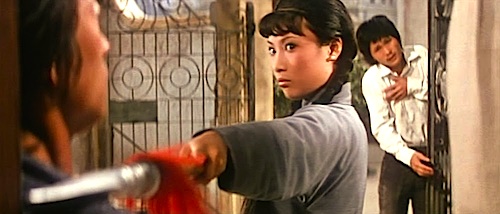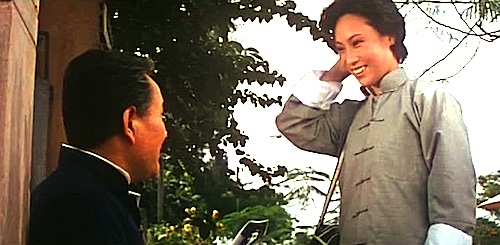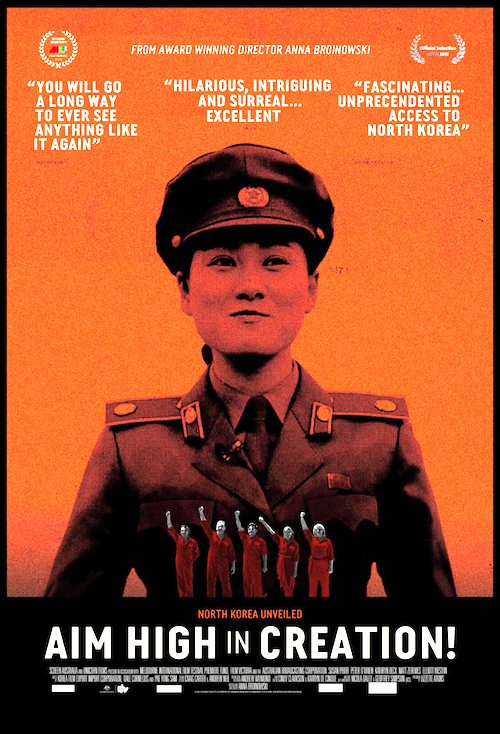 By Joe Bendel. How does this sound to you? “Sure, there were human rights abuses in Hitler’s Germany, but they produced some really entertaining propaganda films.” Absolutely unacceptable, right? Yet, Australian filmmaker Anna Broinowski essentially makes the equivalent argument for North Korea, except she never really acknowledges the Kim dynasty’s appalling oppression of its own people. Instead, she happily heads to the DPRK for pointers on how to make an anti-fracking propaganda film in Aim High in Creation, which screens during the 2014 New York Asian Film Festival.
By Joe Bendel. How does this sound to you? “Sure, there were human rights abuses in Hitler’s Germany, but they produced some really entertaining propaganda films.” Absolutely unacceptable, right? Yet, Australian filmmaker Anna Broinowski essentially makes the equivalent argument for North Korea, except she never really acknowledges the Kim dynasty’s appalling oppression of its own people. Instead, she happily heads to the DPRK for pointers on how to make an anti-fracking propaganda film in Aim High in Creation, which screens during the 2014 New York Asian Film Festival.
According to Frontline, it is estimated that one out every one hundred North Koreans is a political prisoner. In that Orwellian state, it is not just perceived thought criminals who are purged, but also two generations of their families, in both directions. Apparently, Broinowski has no real problem with what she euphemistically calls North Korea’s “closed society,” but “fracking” generates no end of moral indignation.
After assembling her annoying hipster cast, Broinowski jets off to North Korea to get tips from the propaganda masters. She sees all the monumental sites, hanging on her minders’ every word. Not once does she challenge anything said to her, passively accepting their charges of American war crimes. She also readily agrees her native Australia is a country of drunks.
Perhaps the idea was to simply record the state of affairs in North Korea and let the surreal images speak for themselves. However, that approach still requires Broinowski to ask the blindingly obvious questions, to cue the resulting dissembling. That never happens. Instead, she obsequiously sucks up to the propaganda filmmakers, like a star-struck teenager.
Yes, it takes courage to speak truth to the apparatus of control in a “closed society.” Few will ever live up to the gold standard set by Mads Brügger in Red Chapel, but those filmmakers fortunate enough to gain access to the rogue state have to at least try. If Broinowski lost her nerve when faced with the regime’s everyday pervasiveness, she should have scrapped the film and preserved her dignity. Instead, her brown-nosing is just embarrassing.
At times, Broinowski’s own images contradict her words, as when she claims there are no advertisements to be seen in North Korean. We can see this is patently false. Pyongyang is covered in propaganda posters and murals, which are indeed advertisements selling blind obedience to the state. She simply finds their aesthetic consistency pleasing, which is what happens when the state exercises absolute control over all means of expression.
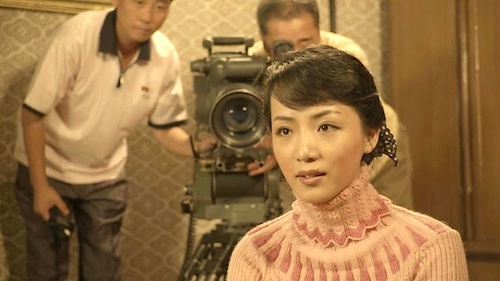
Great value seems to be placed on Broinowski’s “just folks” interactions with her propaganda colleagues, as if the audience will be shocked when they do not immediately throw the thumb screws on her, while singing the Internationale, but of course they are carefully crafting their image. These are propagandists, after all.
Not surprisingly, the resulting anti-fracking propaganda short is utterly unwatchable. However, if enough people see it, The Gardener should secure the safe and profitable production of coal seam gas for many generations to come, which is exactly the legacy Aim High deserves. To return to the original question, National Socialism boasted a stable of world renowned filmmakers that included Leni Riefenstahl and the now discredited Viet Harlan. Arguably, one could learn something from their work, whereas their North Korean counterparts are literally following the Great Leader’s formula.
Either Aim High represents a massive editing room meltdown, or it is a profound failure to document the reality of one of the most oppressive regimes in the world. In any event, it is not worthy of your ticket dollars, especially when there are so many great films still to come at this year’s NYAFF, including the bizarrely heartbreaking Miss Zombie and the deeply moving Great Passage. Both are highly recommended, but Aim High in Creation is definitely not. It screened yesterday (7/10).
LFM GRADE: D-
Posted on July 11th, 2014 at 11:25am.
